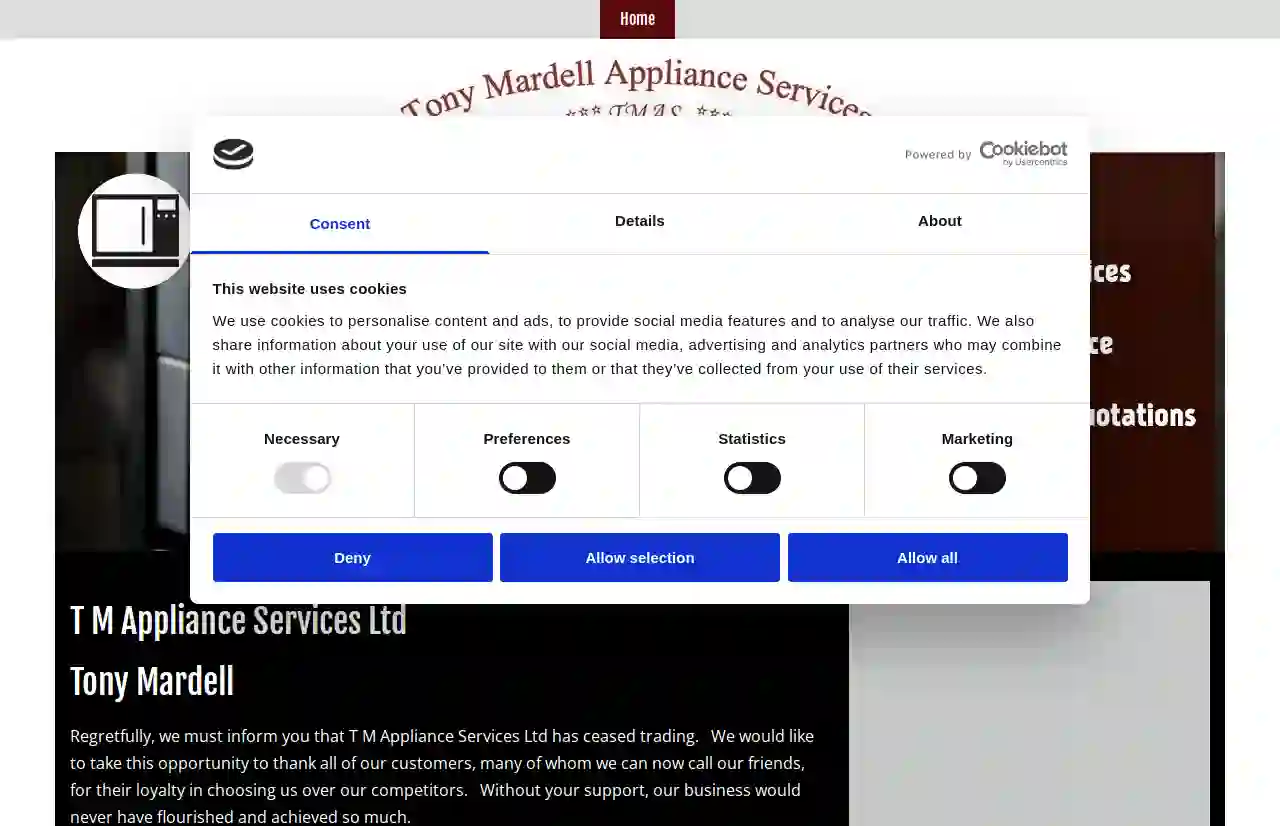AC Repair Littlehampton
Find Air Conditioner Repair in Littlehampton
Receive 3 FREE AC Repair quotes for your project today! Compare profiles, reviews, accreditations, portfolio, etc... and choose the best offer.
- N.
N.A.Smith plumbing And Heating
49 reviewsLittlehampton, GB- Services
- Why Us?
Get Quote 
Shoreline Plumbing, Heating & Gas
553 reviewsRustington, GBBig Enough to Cope, Small Enough to Care. Welcome to Shoreline Plumbing, Heating & Gas. Our simple 4-step process: Get In Touch, Free Survey, Free Quote, and We'll do the rest. We're a professional team providing services such as Underfloor Heating, Plumbing, Heating, Bathroom Installation, Commercial Services, Boiler installation, Boiler Service, Boiler Repair, Oil Boiler Installations, Powerflushing, Gas Safety Checks, Water Softener, and Service Plans.
- Services
- Why Us?
- Our Team
- Testimonials
- Gallery
Get Quote- Cl
Climatic Test Services Ltd
11 reviewsLittlehampton, GB- Services
- Why Us?
Get Quote - Co
Condair Ltd
4.115 reviewsLittlehampton, GB- Services
- Why Us?
Get Quote - Li
Littlehampton Welding Ltd
4.17 reviewsLittlehampton, GB- Services
- Why Us?
Get Quote - Pl
Plumber Pete
526 reviewsLittlehampton, GB- Services
- Why Us?
Get Quote 
T M Appliance Services
4.618 reviews30-32 South Street, Worthing, BN14 7LN, GBT M Appliance Services Ltd, formerly owned and operated by Tony Mardell, has regrettably ceased trading. We extend our sincere gratitude to all our valued customers, many of whom have become cherished friends, for their unwavering loyalty and support. Without your patronage, our business would not have achieved the success it has. If you require assistance with domestic appliance repairs or replacements, please contact our colleagues at R Barker (Tarring) Ltd. They can be reached at 01903 785410 or 01903 233680. Their shop is conveniently located at 30-32 South Street, Worthing, West Sussex, BN14 7LN. Thank you for your understanding.
- Services
- Why Us?
- Gallery
Get Quote- LE
LEVETT & QUINN LIMITED
4.712 reviewsLittlehampton, GB- Services
- Why Us?
Get Quote - K
K Stephenson
4.928 reviewsLittlehampton, GB- Services
- Why Us?
Get Quote - X
X B G Plumbing & Heating Ltd
4.737 reviewsLittlehampton, GB- Services
- Why Us?
Get Quote
Over 16,895+ HVAC Businesses on our platform
Our HVAC companies operate in Littlehampton & surroundings!
HVACCompaniesHub has curated and vetted the Best HVAC Businesses arround Littlehampton. Find a trustworthy pro today.
Frequently Asked Questions About AC Repair
- Refrigerant Leaks: Low refrigerant levels reduce cooling capacity and can damage the compressor. Signs include warm air, ice on lines, and hissing sounds.
- Frozen Evaporator Coil: Restricted airflow (often from a dirty air filter) can cause ice to form on the coil, hindering cooling.
- Dirty Air Filters: A clogged filter restricts airflow, reducing efficiency and potentially causing other problems.
- Faulty Capacitor: The capacitor helps start the motor. A bad capacitor can prevent the AC from turning on or cause intermittent operation.
- Compressor Problems: The compressor is the heart of the system. Issues here are serious and often require professional repair or replacement. Look for unusual noises, reduced cooling, or frequent cycling.
- Thermostat Malfunctions: An inaccurate or unresponsive thermostat can lead to inefficient cooling or prevent the system from turning on/off properly.
- Clogged Condensate Drain Line: The drain line removes condensation. If blocked, it can cause water leaks or damage to the system.
- Regular maintenance: Schedule professional tune-ups at least once a year to optimize performance.
- Programmable thermostat: Automate temperature adjustments to save energy when you're away or asleep.
- Seal air leaks: Caulk and weatherstrip windows and doors to reduce drafts.
- Proper insulation: Ensure adequate insulation to minimize heat transfer.
- Ventilation: Improve ventilation to remove excess heat and humidity.
- Energy-efficient appliances: Choose appliances with the Energy Star label to reduce overall energy load.
- HVAC zoning: Consider zoning to better regulate temperature different areas.
Can a dirty air filter cause my AC to freeze up?
What is a condenser coil, and what role does it play in my AC unit?
What are the most common AC problems?
How can I improve my AC's energy efficiency?
Can a dirty air filter cause my AC to freeze up?
What is a condenser coil, and what role does it play in my AC unit?
What are the most common AC problems?
- Refrigerant Leaks: Low refrigerant levels reduce cooling capacity and can damage the compressor. Signs include warm air, ice on lines, and hissing sounds.
- Frozen Evaporator Coil: Restricted airflow (often from a dirty air filter) can cause ice to form on the coil, hindering cooling.
- Dirty Air Filters: A clogged filter restricts airflow, reducing efficiency and potentially causing other problems.
- Faulty Capacitor: The capacitor helps start the motor. A bad capacitor can prevent the AC from turning on or cause intermittent operation.
- Compressor Problems: The compressor is the heart of the system. Issues here are serious and often require professional repair or replacement. Look for unusual noises, reduced cooling, or frequent cycling.
- Thermostat Malfunctions: An inaccurate or unresponsive thermostat can lead to inefficient cooling or prevent the system from turning on/off properly.
- Clogged Condensate Drain Line: The drain line removes condensation. If blocked, it can cause water leaks or damage to the system.
How can I improve my AC's energy efficiency?
- Regular maintenance: Schedule professional tune-ups annually to optimize performance.
- Programmable thermostat: Automate temperature adjustments based on your schedule.
- Seal air leaks: Caulk and weatherstrip windows and doors to reduce air leakage.
- Proper insulation: Ensure adequate insulation to minimize heat transfer.
- Ventilation: Improve ventilation to remove excess heat and humidity.
- Energy-efficient appliances: Choose appliances with the Energy Star label to reduce overall energy load.
- HVAC zoning: Consider zoning to better regulate temperature different areas.